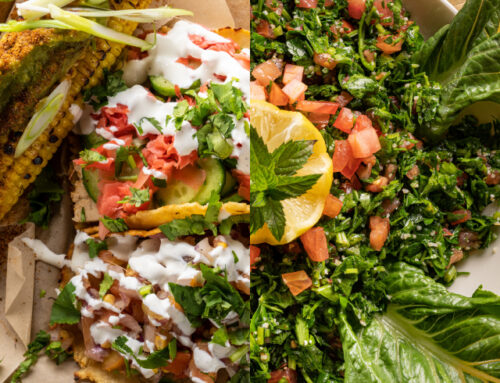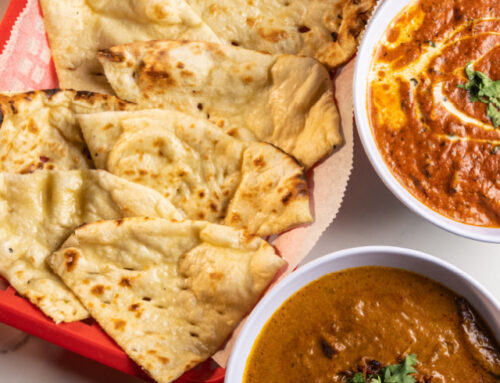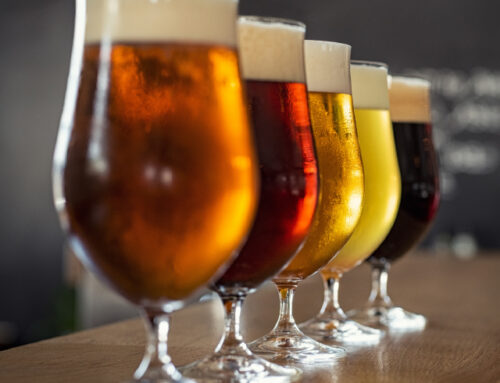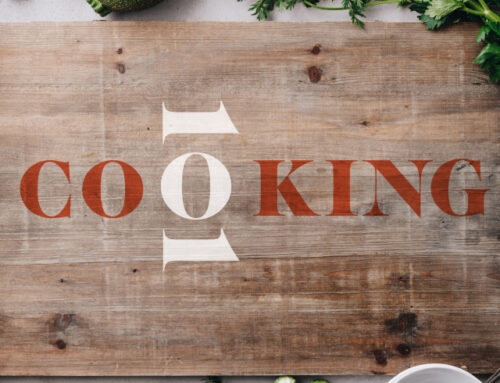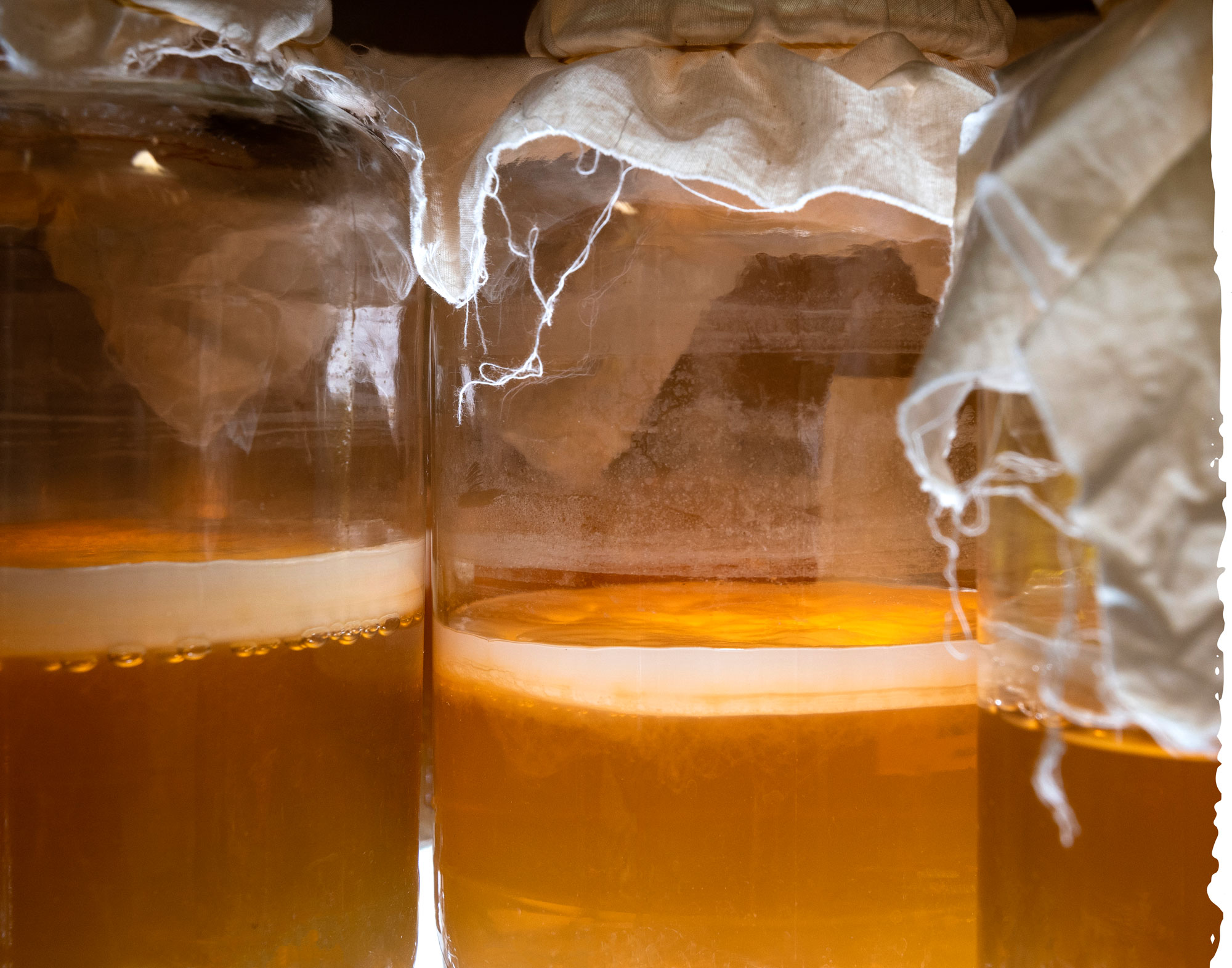

BY STEPHANIE ECKELKAMP
Meet two guys who are making the Lehigh Valley a hotspot for one of the trendiest beverages around: kombucha!
If you had told me five years ago that I’d soon be hooked on a fizzy drink made by fermenting tea in a jar with a little bit of sugar and a large, gelatinous blob of bacteria and yeast…well, I probably would have laughed, cracked open a can of Diet Pepsi, and asked for another joke. Because, honestly, that sounds pretty damn disgusting.
Fast forward to present day and kombucha—that funky, fermented tea—is now a multi-million dollar industry (an estimated 51% of U.S. adults between ages 25 and 34 drink it, according to a report by the market research company Mintel), and I’m personally guzzling it down by the growler on a weekly basis.
But why? For one, it’s delicious. Sure, some people may find kombucha to be an acquired taste because they haven’t experienced anything like it before; but over time, that bubbly, tangy sweetness becomes almost addictive. And, at least for me, it seems to quell the urge to reach for sugar-laden drinks like soda, and even alcohol.
The real selling point, though, is the health perks, most of which are a result of the fermentation process. When kombucha is made, a SCOBY (symbiotic colony of bacteria and yeast) is added to sweetened tea, and a few interesting things start to happen: First, the yeast begins to digest the sugar in the tea, which produces carbon dioxide and a very small amount of alcohol. Then, the bacteria consume most of the alcohol and produce a number of beneficial compounds as a result such as amino acids, vitamins, minerals, and probiotics.
“Raw, unpasteurized kombucha is packed with probiotics, or beneficial bacteria, which have been shown to stimulate the immune system, improve the health of the gut microflora, and aid in digestive health,” says Gina Hassick, registered dietitian and founder of the Easton-based nutrition counseling business Eat Well with Gina. “It also has some detoxifying properties, thanks to its glucaric acid content; and because it contains B vitamins, it can act as a natural stimulant, providing steady energy and focus without the jitters or crash you might experience with coffee.”
It also makes a mean mixer for alcoholic drinks. “It adds flavor and natural carbonation without all the extra sugar and calories of a juice cocktail or soda,” says Hassick, adding that most kombucha contains just three to four grams of sugar per serving, since most is eaten up during fermentation. (Check out some of the best kombucha and booze pairings on page 119!)
Pretty cool, right? What’s even cooler is that some of the best kombucha is made right here in the Lehigh Valley by two local guys with a passion for quality, organic ingredients. Both run their own small-but-thriving kombucha brewing businesses. If you haven’t met them yet, let us happily be the first to introduce you.


FOUNDER OF PORTCH TEA
To Don DeVault, founder of Emmaus-based Portch Tea, there are few greater joys than handpicking chamomile on a hot day and breathing in its intoxicating scent. Lucky for him, he gets to do it pretty often. Every summer, vast swaths of this flowering herb take over the fields of his family’s farm, while blueberry bushes bear their sweet fruits, and greenhouses brim with herbs like lemon balm, sage, tulsi, and lemongrass. Lucky for us, all of these magnificently flavorful and aromatic ingredients make their way into his truly one-of-a-kind kombucha.
DeVault never planned to start a kombucha company, though. In fact, when a “weird hippie couple” gave him his first bottle to try when he was living in Chile in 2009, he didn’t think much of it. Which is kind of comical, considering he now produces 250 gallons of the stuff every week. His original plan was to grow herbs, dry them, and sell them as medicinal teas. But that market, already steeped in competition (pun very much intended), was hard to make a living in—and hot water, it turns out, doesn’t carry the flavor of herbs as well as you’d think.
So he was receptive, but totally unprepared when someone suggested he start making kombucha. “I looked online, I even talked to Gary [of Lehigh Valley Kombucha], and then I just started giving it a shot,” he says. “It was all trial and error. But kombucha happens to be a pretty perfect vehicle for the herbs. With the acids and sugars in there, it carries flavor in a way that’s just amazing.”
In late 2016, after mastering his formula—a base of organic black tea, yerba mate, and cane sugar, into which he adds herbs and fruits in a secondary fermentation process—DeVault started selling kombucha at the Easton Farmers’ Market. Things took off from there. Now he sells at four farmers’ markets and has kegs on tap at over a dozen restaurants and stores from the Lehigh Valley to Philadelphia. It’s the fact that he sells via kegs that has allowed him to infiltrate bars, like Easton’s Separatist Beer Project, which find themselves catering to an ever growing population of health-conscious consumers who occasionally want something alcohol-free to sip on while they socialize.
While DeVault spends plenty of time outside farming (without using a single chemical, in case you were wondering), the real magic happens in the farmhouse basement, which is filled with tall stainless steel fermenters, large glass jars, kegs, and countless containers of his dried herbs. It’s dark and crowded, but orderly, with a chemistry lab-meets-apothecary vibe. Eventually, the plan is to put up a building on his family’s property, which would be part living, part brewing, part retail space. But for now, this setup works just fine.
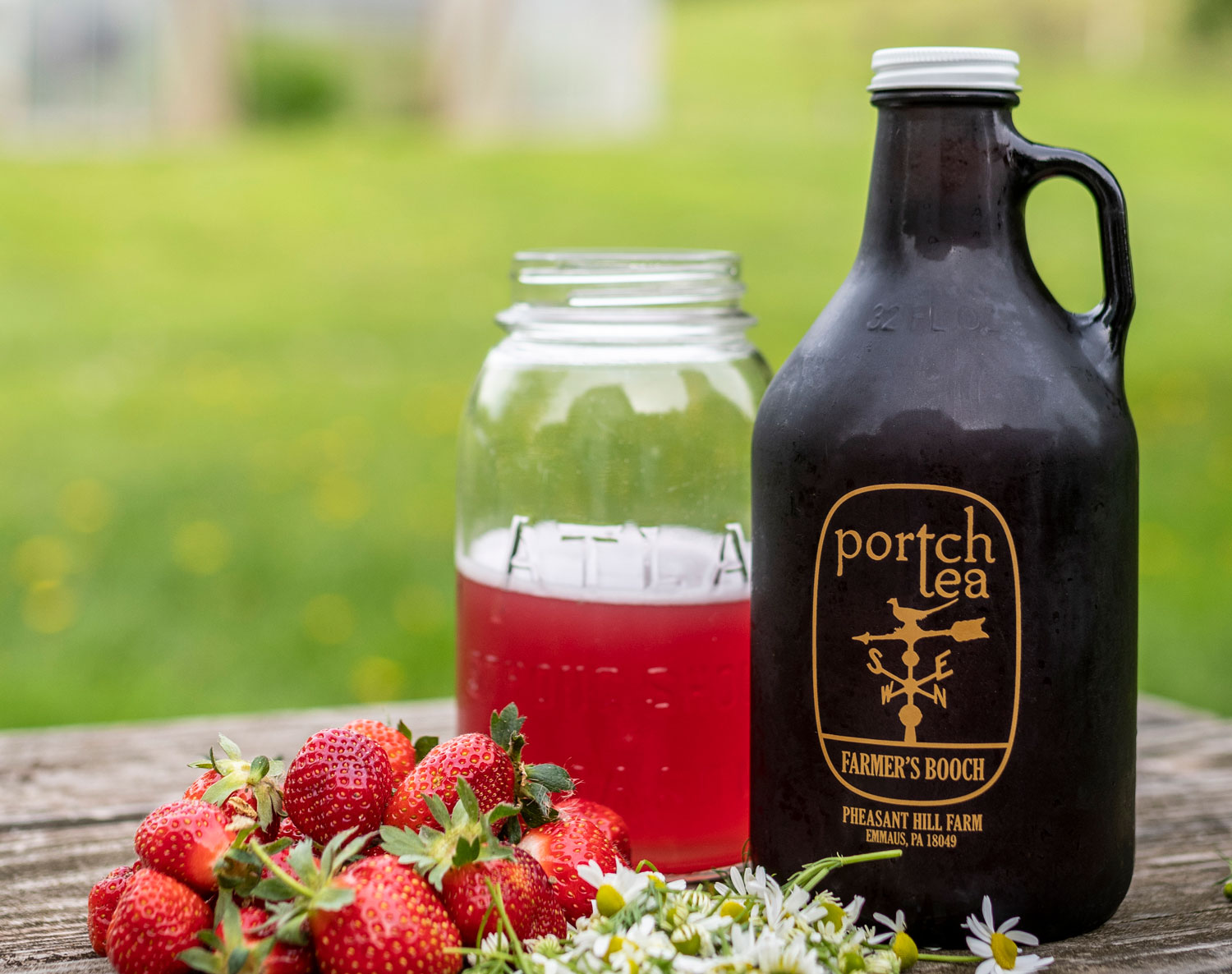
WHERE TO FIND PORTCH TEA KOMBUCHA
Easton Farmers’ Market
Saturdays 9 a.m. – 1 p.m.
Centre Square, Easton
Emmaus Farmers’ Market
Sundays 10 a.m. – 2 p.m.
235 Main St, Emmaus
Doylestown Farmers’ Market
Saturdays 8 a.m. – 1 p.m.
Hamilton St, Doylestown
Lansdale Farmers’ Market
Saturdays 9 a.m. – 1 p.m.
400 Penn St, Lansdale
Healthy Alternatives
7150 Hamilton Blvd, Trexlertown
Maxim’s 22
322 Northampton St, Easton
Mojo 516 Café
516 March St, Easton
Nature’s Way
143 Northampton St, Easton
Café Frais
2301 W Liberty St, Allentown
Separatist Beer Project
101 Northampton St, Easton
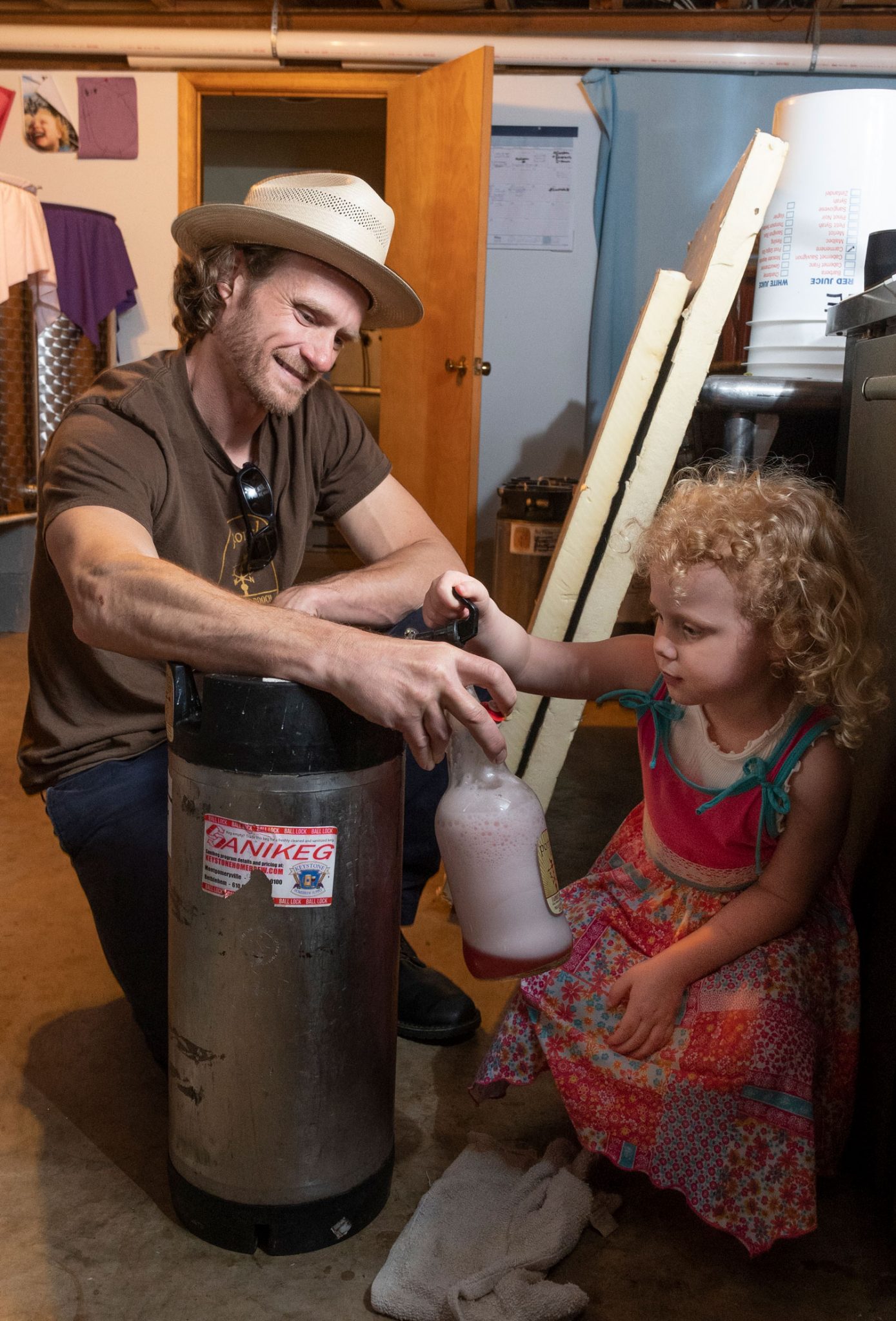
DeVault readily admits that none of his success would be possible without his family. The Emmaus-based Pheasant Hill Farm where he grows his herbs was purchased by his parents, George and Melanie, in 1984, where they originally grew vegetables for a small CSA—and they’re the ones you’ll see filling growlers and cups of kombucha at the Easton Farmers’ Market every Saturday. Today, they all live and work on the farm together, along with Don’s 4-year-old daughter Lucía, who’s always eager to help pick berries, taste test, or toss a few beets into a batch of booch.
It’s this family involvement and connection to the land that’s part of what makes running the business so rewarding for DeVault—and it’s the main reason he wants to keep things small. “You get faceless when you get too big, or when your product ends up in Whole Foods,” he says. “And that’s not what I want. There’s a heart to this operation, so it’s worth all the running around to keep it face to face. If I can continue to make a living and keep the farm going, that’s the whole idea.”
A BRIEF HISTORY OF KOMBUCHA
Ask five different people where kombucha comes from and you might get five different answers. The fact is, no one is totally sure, but one theory is that it dates back to around 221 B.C., during China’s Tsin Dynasty, where it was known as the “tea of immortality.”
Subsequently, historical accounts suggest that kombucha was consumed in Eastern Europe, Russia, and Japan for several centuries. In Japan, Samurai warriors were said to carry it in their wineskins because it gave them energy in battle. Kombucha consumption then spread to places like Germany and Denmark, but largely died out during WWII, when sugar and tea were rationed.
After the war, a German researcher created renewed interest in kombucha when he used it to help treat some of his patients with cancer, diabetes, and high blood pressure. From there, interest waxed and waned until the early 2000s, when GT’s Kombucha entered the scene and became the first commercially available kombucha to hit the market. But it wasn’t until 2010, when GT’s increased its distribution nationwide, that this fizzy fermented tea was set on a course to become one of the trendiest beverages of the 21st Century.
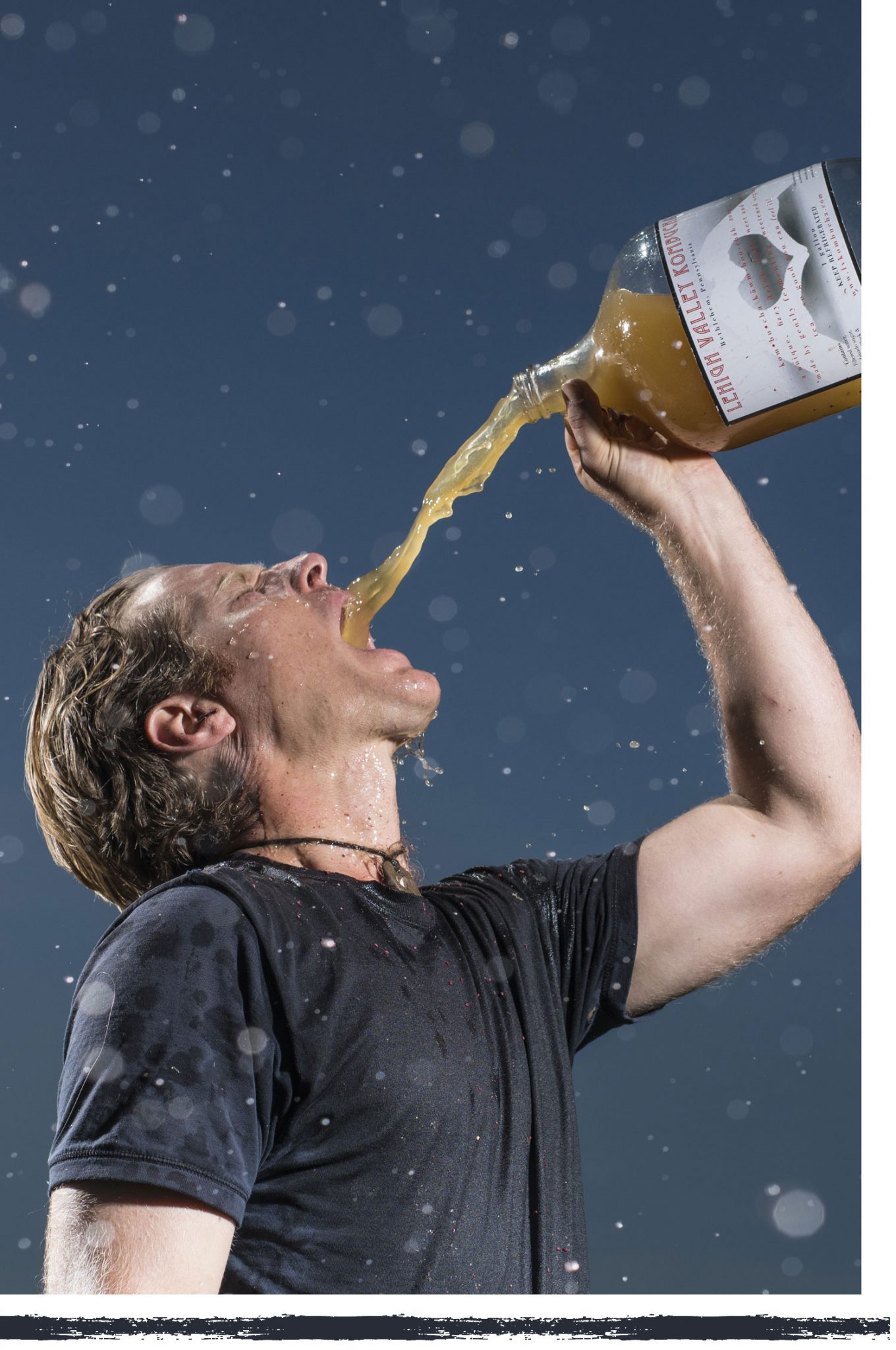

FOUNDER OF LEHIGH VALLEY KOMBUCHA
“If kombucha were alcohol, I’d definitely be an alcoholic,” says Gary Warren, founder of Lehigh Valley Kombucha, which is based out of Common Space, a commercial kitchen in Easton that he shares with bakers, caterers, and food truck vendors. In fact, multiple times throughout our conversation he refills his glass of apple-turmeric kombucha (his newest flavor), looking happier with every sip.
He didn’t always feel this way, though. “I can’t say I really liked it,” says Warren, recalling the first time he ever tried kombucha. “With store-bought kombucha, you can almost taste how old it is—there’s almost a dustiness to it. But I started drinking it at a time when I was doing a lot of new and healthy things, and I knew it was good for me, so I kept drinking it.”
But soon, Warren thought he might be able to make it better than the big names. So he attended a community workshop where the instructor sent everyone home with a SCOBY starter and a jar, and he quickly started experimenting. At first, it was just for himself. He’d make a gallon every so often, and then two, and then four, and then, before he knew it, demand from his friends was so high that he was hunting down empty gallon-sized plastic pickle containers from local restaurants to fill with the homemade pineapple-ginger kombucha he’d been making out of his closet—surprisingly, the ideal dark, warm environment for brewing. “People were willing to do some pretty shady stuff to get their hands on this kombucha,” he laughs. (Rest assured, his closet brewing days are over.)
The first time Warren realized that his hobby could be a legitimate source of income was when he brought 10 gallons of kombucha to Bethlehem’s first VegFest in 2011 and quickly sold out. The next year, he brought 30 gallons, and that went just as quickly. Fast forward to present day, and his vision of a thriving kombucha business has taken shape. He brews up to 90 gallons a week, which he sells in two sizes—wine bottle and a gallon jug—at five different farmers’ markets throughout the Lehigh Valley. “Most people who love kombucha want to drink some every day, and selling it by the gallon allows people to do that without paying high retail prices for individual bottles,” he explains.
After tasting Warren’s kombucha, it’s easy to see why he’s successful. It’s fresh, flavorful, just sweet enough, and not nearly as vinegary as many of the varieties you’ll find lining grocery store shelves. He uses organic black tea, green tea, and cane sugar to brew his plain kombucha base, then adds purees of local, organic fruits to create each of his nine flavors: pineapple-ginger, strawberry-rhubarb, mango, blackberry, grapefruit, hot pepper-lime, apple-turmeric, cranberry, and peach.
“I get a lot of people at farmers’ markets who tell me they hate kombucha because it’s too harsh or bitter, and then they try mine and don’t understand how it’s so good,” says Warren. “I tell them, everything in the store is old. Try to feed a kid a peach from a grocery store in February and he’ll think it’s gross, but take him to a peach orchard in August and he’ll think it’s amazing. It’s the same concept with kombucha.”
But it’s not just quality and freshness that sets Warren apart. It’s his commitment to getting kombucha into the hands of everyone who wants it. In addition to selling at farmers’ markets, he will deliver kombucha right to your door. He takes orders via Lehigh Valley Kombucha’s Facebook page, and for customers who don’t have Facebook, he sends out about a hundred individual texts listing the current week’s flavors.
“I’m sort of local through and through,” he says when asked if he has any big plans to expand to other regions. “Kombucha gives me this great excuse to interact with people I would otherwise never talk to in my community. If I can get more people in the Lehigh Valley to understand and appreciate what good kombucha is, and to patronize Lehigh Valley Kombucha, I’d be pretty content with that.”
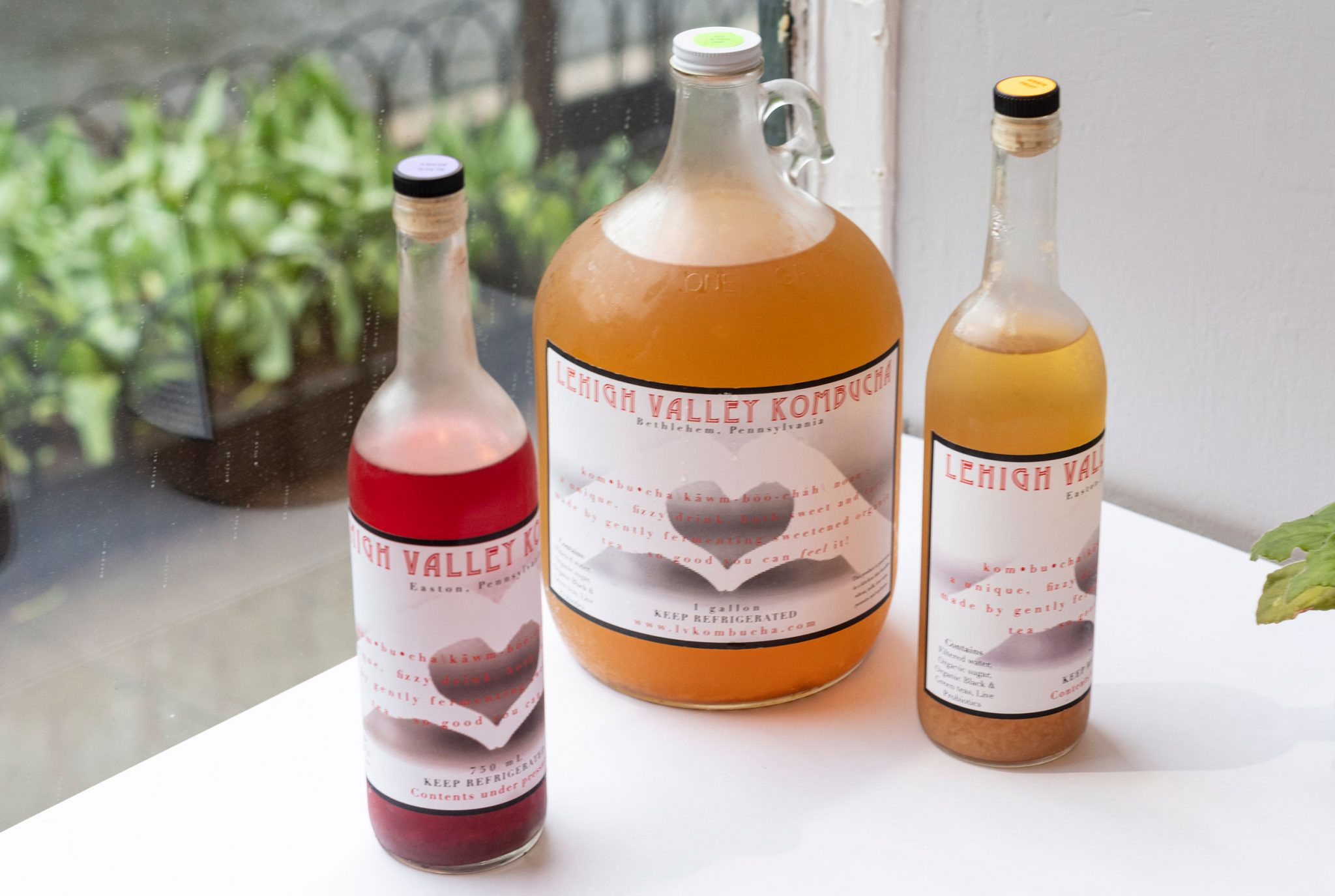
WHERE TO FIND LEHIGH VALLEY KOMBUCHA
Bethlehem Farmers’ Market
Thursdays 11 a.m. – 3 p.m.
Farrington Square, Bethlehem
Bethlehem Rose Garden Farmers’ Market
Saturdays 9 a.m. – 1 p.m.
651-699 8th Ave, Bethlehem
Trexlertown Farmers’ Market
Saturdays 9 a.m. – 1 p.m.
1151 Mosser Rd, Breinigsville
Saucon Valley Farmers’ Market
Sundays 9 a.m. – 1 p.m.
90 W. Water St, Hellertown
Emmaus Farmers’ Market
Sundays 10 a.m. – 2 p.m.
235 Main St, Emmaus
Common Space
154 Northampton St, Easton
Every week, Gary posts available flavors on Facebook.com/LehighValleyKombucha. Comment with your order, then pick it up on Sundays between 11 a.m. and 1 p.m. at Common Space. Want it delivered? For a $5 fee, Gary can do that. There are also bottles available in Common Space’s refrigerator case throughout the week.
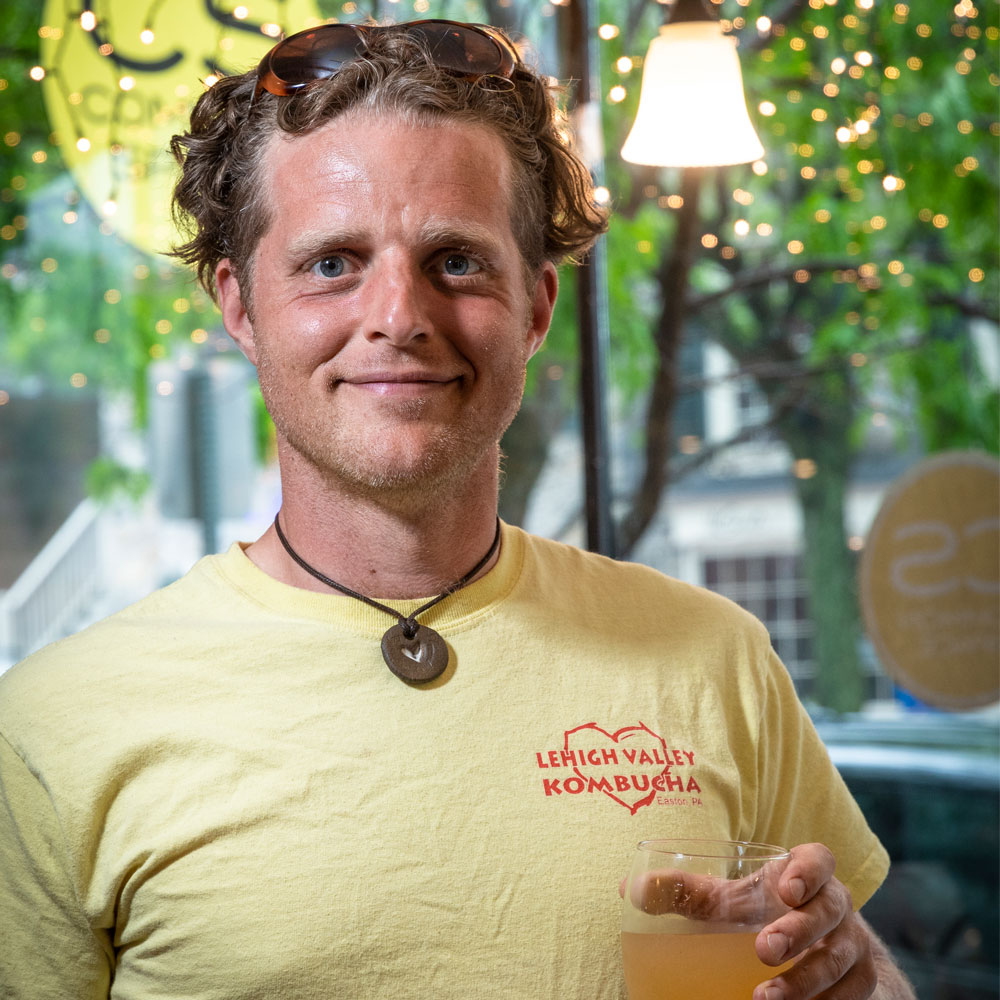
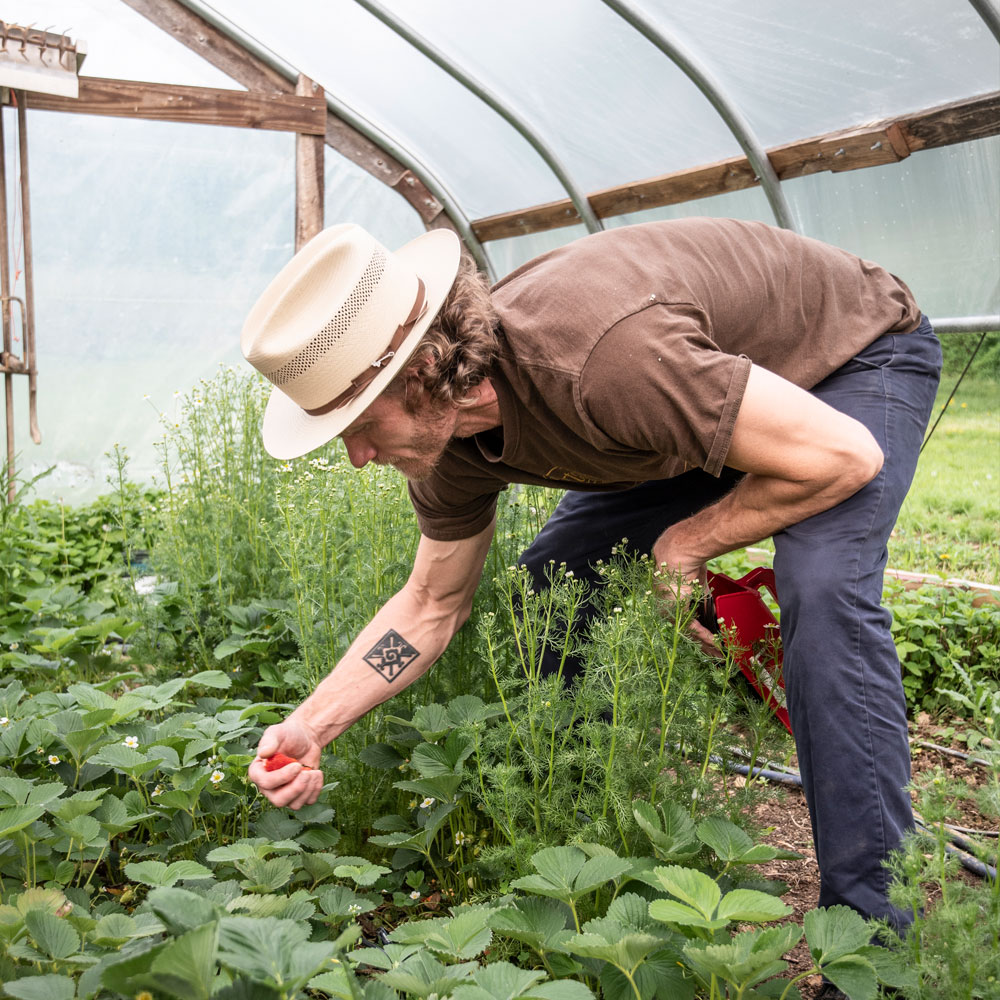
Kombucha + Booze Pairings
Everyone’s in agreement: Kombucha makes one of the tastiest, healthiest cocktail mixers. In fact, Black & Blue in Easton and Edge in Bethlehem currently have margaritas on their menu featuring Gary’s Hot Pepper-Lime kombucha. Here, Gary and Don share a few of their favorite booch and booze combos. For each, combine a shot’s worth of liquor and 6 to 8 ounces of kombucha.
Gary’s Picks:
Hot Pepper-Lime + Tequila
This spicy kombucha pairs perfectly with tequila for a healthier take on a margarita.
Pineapple-Ginger + Whiskey
Craving a whiskey sour? Steer clear of sugary mixers. This combo has all the tangy sweetness you need.
Grapefruit + Gin
One taste and you’ll be sipping this refreshing combo all summer.
Don’s Picks:
Símon Límon + Vodka
Neutral tasting vodka can be paired with any flavor, but this combo is reminiscent of a lemon drop martini.
Apple Bomb + Bourbon
If autumn were a cocktail, this would be it.
Tulsi + Gin
Any of Portch Tea’s herbal and floral flavors pair well with gin’s botanical notes.
As seen in the Summer/Fall 2018 Issue
Click to Visit Our Advertisers

